
Did you know that chemotherapy can have a serious impact on male fertility, specifically on spermatogenesis? It’s true! For men facing cancer treatment, understanding the effects of chemotherapy on sperm and the potential consequences of prolonged azoospermia and permanent azoospermia is crucial. The testicles are particularly vulnerable to the effects of chemotherapy on male reproductive health, so this is something that should not be overlooked.
Chemotherapy, a common cancer treatment for testicular cancer and prostate cancer, can cause azoospermia, the absence of sperm in semen. This occurs because chemotherapy drugs can impact the production and function of germ cells in the testicles, where spermatogenesis takes place. Consequently, males undergoing chemo may experience a decline in their ability to produce viable sperm.
Considering male fertility preservation before starting chemotherapy becomes paramount for those who wish to have children in the future. Options like sperm banking or testicular tissue freezing can help preserve fertility and offer hope for parenthood down the road. This is especially important because chemotherapy can negatively impact spermatogenesis and spermatogonial stem cells, potentially leading to permanent azoospermia.
It’s important to note that not all males will experience infertility as a result of chemotherapy. Factors such as age, type of cancer treatment, and individual variations play significant roles in determining the extent of fertility impact, including low sperm count and prolonged azoospermia. However, it is crucial for healthcare providers and patients alike to proactively address this issue of low sperm counts and permanent azoospermia.
We’ll explore the mechanisms behind testicular cancer and spermatogenesis (the process of sperm production) in the testis, discuss testosterone levels and their role in reproduction, and examine ways to mitigate potential damage caused by chemo to the stem spermatogonia in the testicles.
So buckle up and join us on this informative journey about how long-term consequences from cancer treatment, such as chemo, can affect male reproductive health in relation to testicular cancer and prostate cancer therapy!

How does chemotherapy affect sperm quality?
Chemotherapy, while effective in treating cancer, can have detrimental effects on spermatogenesis and sperm quality. The toxic nature of chemotherapy drugs can lead to various changes in azoospermia, testicles, testis production, count, motility, and morphology.
Chemotherapy drugs can damage sperm DNA, leading to reduced quality.
One of the major concerns regarding chemotherapy’s impact on sperm is its potential to damage DNA, particularly in men with testicular cancer. Sperm cells, which are crucial for spermatogenesis and fertility, are highly sensitive to the toxic effects of chemo drugs. This can result in genetic abnormalities and azoospermia, reducing the chances of successful fertilization and healthy embryo development. Therefore, it is important to consider the potential impact of cancer treatment on sperm quality and fertility.
Sperm count and motility may decrease due to the toxic effects of chemo drugs.
Chemotherapy treatment can cause a decline in sperm count and motility, leading to azoospermia. The toxic substances in chemo drugs interfere with spermatogenesis and impair sperm movement. As a result, men with testicular cancer may experience decreased quantity and quality of sperm. Additionally, prostate cancer patients undergoing chemotherapy may also face these fertility challenges.
Certain types of chemotherapy can cause abnormalities in sperm shape (morphology).
Another aspect affected by chemotherapy is spermatogenesis, the process of sperm cell production. Some types of chemo drugs have been found to induce structural abnormalities in spermatogonia, the cells that give rise to sperm. These abnormalities, such as misshapen heads or tails, can make it more difficult for the affected sperm to reach and penetrate an egg during fertilization. Consequently, this can further contribute to decreased fertility rates among individuals who have undergone chemotherapy treatments. Additionally, there is a potential link between chemotherapy and azoospermia, a condition characterized by the absence of sperm in semen. This condition can have a significant impact on fertility and reproductive health. Furthermore, studies have suggested a possible association between chemotherapy and prostate cancer, emphasizing the importance of monitoring and managing potential long-term effects of treatment.
The duration and intensity of chemo treatment play a significant role in determining the impact on azoospermia and spermatogenesis. Generally, longer durations or higher doses of chemotherapy have more severe effects on sperm production and quality. However, the decline in sperm quality can vary among individuals due to unique responses to radiation.

Factors influencing sperm recovery after chemotherapy
Age: Does age affect how well sperm recovers post-treatment?
Age is a crucial factor that can influence the recovery of sperm after chemotherapy in individuals with azoospermia. Generally, younger individuals have a better chance of restoring their spermatogenesis and spermatogonia compared to older individuals undergoing cancer treatment. This is because as we age, our reproductive system undergoes natural changes that can impact fertility. Younger men tend to have a higher number of healthy and active sperm, which increases the likelihood of successful recovery after chemotherapy.
How does the type and dosage of chemotherapy drugs impact the chances of recovery? Chemotherapy drugs, also known as cytotoxic drugs, are used to treat cancer by targeting and killing rapidly dividing cells. The doses of these drugs are carefully calculated based on factors such as the patient’s weight, overall health, and the specific type of cancer being treated. The dosage of chemotherapy drugs can vary depending on the individual patient and their unique circumstances. Additionally, radiation therapy and surgery may be used in conjunction with chemotherapy to further enhance treatment outcomes.
The specific type and dosage of chemotherapy drugs used during treatment can significantly affect the chances of sperm recovery in patients with azoospermia. Some chemotherapy drugs, such as radiation, are more harmful to spermatogonia production than others. High-dose regimens or certain combinations of drugs may cause more severe damage to the testicles, leading to reduced or even temporary infertility in patients with prostate cancer.
Individual genetics and overall health play a crucial role in the ability to restore sperm quality. One potential avenue for recovery is through the use of spermatogonia stem cells. These cells have the potential to rejuvenate and replenish the prostate, leading to improved sperm quality. By understanding how genetics and overall health impact the function of these stem cells, we can develop targeted therapies that optimize their effectiveness in restoring sperm quality.
Another critical factor in determining how well spermatogonia recovery occurs after radiation or chemotherapy is an individual’s genetics and overall health. Genetic variations play a role in how susceptible someone may be to the damaging effects of radiation or chemotherapy on their prostate and reproductive system. Pre-existing health conditions or underlying factors can impact the body’s ability to repair and regenerate damaged cells, including those responsible for producing healthy sperm.
Lifestyle factors: Can smoking, alcohol consumption, obesity hinder cancer therapy recovery after surgery, radiation therapy, and stem cell treatment?
Lifestyle choices such as smoking, excessive alcohol consumption, and obesity can negatively impact both fertility and the recovery process after chemotherapy. Smoking has been linked to lower semen quality and decreased fertility in men. Similarly, excessive alcohol intake can disrupt hormone levels necessary for normal spermatogenesis. Obesity is also associated with impaired fertility due to hormonal imbalances and increased oxidative stress on reproductive organs. Additionally, radiation therapy can have detrimental effects on spermatogonia, while prostate cancer treatment may affect the production of stem cells.
It is important for individuals undergoing or planning to undergo chemotherapy treatment for prostate cancer to consider making positive lifestyle changes that support their overall health and aid in the recovery of sperm quality. Quitting smoking, reducing alcohol consumption, and maintaining a healthy weight can all contribute to better outcomes in terms of fertility restoration after radiation, stem cell therapy, or surgery.
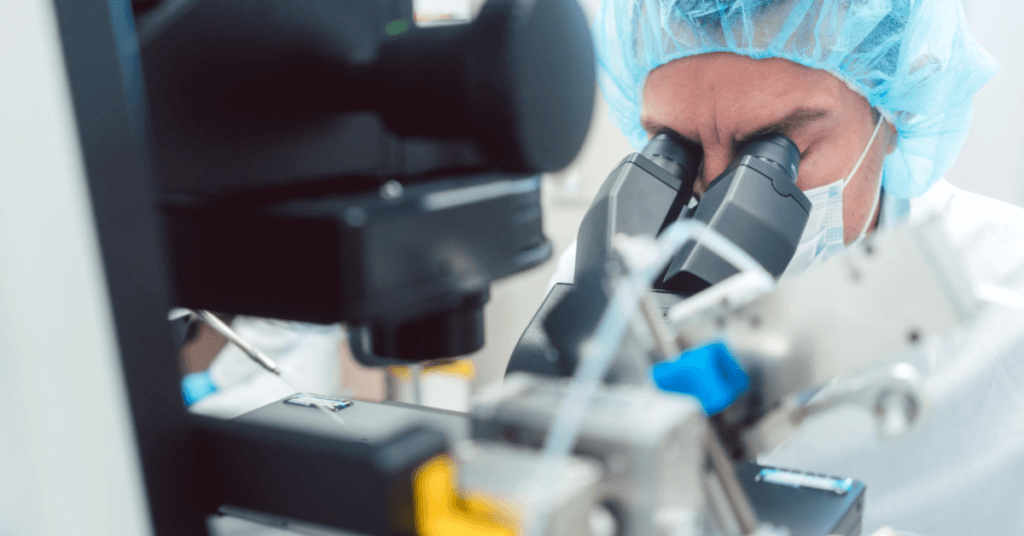
Understanding the mechanism of chemo-induced sperm damage
Chemotherapy is a powerful treatment that has saved countless lives in the fight against cancer. However, it also comes with its fair share of side effects, one of which is its impact on sperm health and fertility. This is particularly relevant for men undergoing radiation or prostate surgery as part of their cancer treatment and recovery.
Chemotherapy drugs generate oxidative stress, leading to damage in sperm cells.
One of the primary ways in which chemotherapy agents affect sperm is by generating oxidative stress within the body. Oxidative stress occurs when there is an imbalance between free radicals (highly reactive molecules) and antioxidants (substances that neutralize free radicals). When chemotherapy agents are administered, they can increase the production of free radicals in the body, overwhelming the natural antioxidant defenses. This can impact prostate surgery recovery.
This excess of free radicals can lead to significant damage to prostate and sperm cells. The DNA within these cells can become fragmented or broken, affecting their ability to function properly. Oxidative stress can cause structural abnormalities in sperm, impairing their motility and ability to fertilize an egg. Radiation therapy and agents can help address these issues. Additionally, stem cells play a crucial role in repairing the damaged cells.
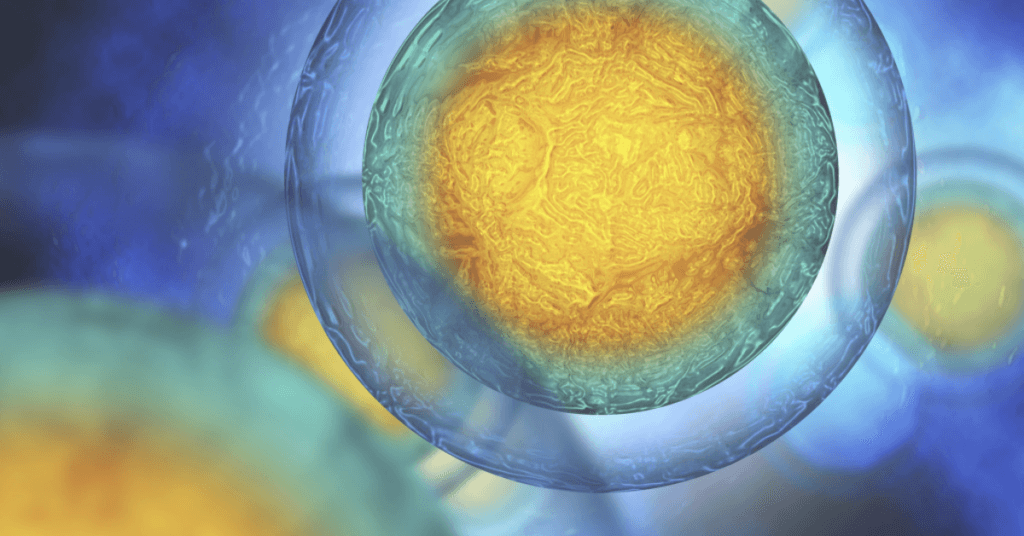
DNA fragmentation occurs when chemo disrupts normal cell division processes in testes.
Chemotherapy agents target rapidly dividing cells, such as cancer cells, during surgery. Unfortunately, this means that they also affect other rapidly dividing cells in the body, including those responsible for producing stem cells. The disruption caused by chemotherapy drugs can interfere with normal cell division processes within the testes, impacting recovery.
As a result of radiation therapy and the use of chemo drugs, DNA fragmentation may occur in developing sperm cells. This means that pieces of DNA become damaged or even lost during replication. The presence of fragmented DNA within sperm can have detrimental effects on fertility and increase the risk of genetic abnormalities in offspring. These agents used in adoption can have negative consequences on reproductive health.
Chemo agents may interfere with hormone production necessary for healthy spermatogenesis.
Hormones play a crucial role in regulating spermatogenesis – the process through which mature sperm are produced. Unfortunately, some chemotherapy agents can interfere with the production of these hormones, leading to disruptions in spermatogenesis. This can impact fertility and require surgery for recovery. However, another option for starting a family is through adoption. Additionally, stem cell therapy may also be considered as a potential solution for restoring hormone production and improving spermatogenesis.
For example, certain agents, such as drugs, may suppress the production of testosterone, a hormone essential for healthy sperm development. Without adequate levels of testosterone, the quality and quantity of sperm produced may be significantly reduced. This can have long-lasting effects on fertility and reproductive health, especially after surgery or radiation therapy.
Reduced blood flow to the testes during treatment contributes to impaired semen parameters.
During chemotherapy treatment, there is often a reduction in blood flow to various parts of the body, including the testes. This decrease in blood flow can have negative consequences for sperm health and fertility during surgery and recovery. Agents used in chemotherapy may affect the recovery process.
Adequate blood flow is crucial for the recovery of the testes, delivering oxygen and nutrients to support their normal function. When blood flow is compromised, it can lead to impaired semen parameters such as decreased sperm count and motility. Reduced blood flow may contribute to increased oxidative stress within the testes, exacerbating damage to sperm cells. Therapy agents can help in the recovery process.
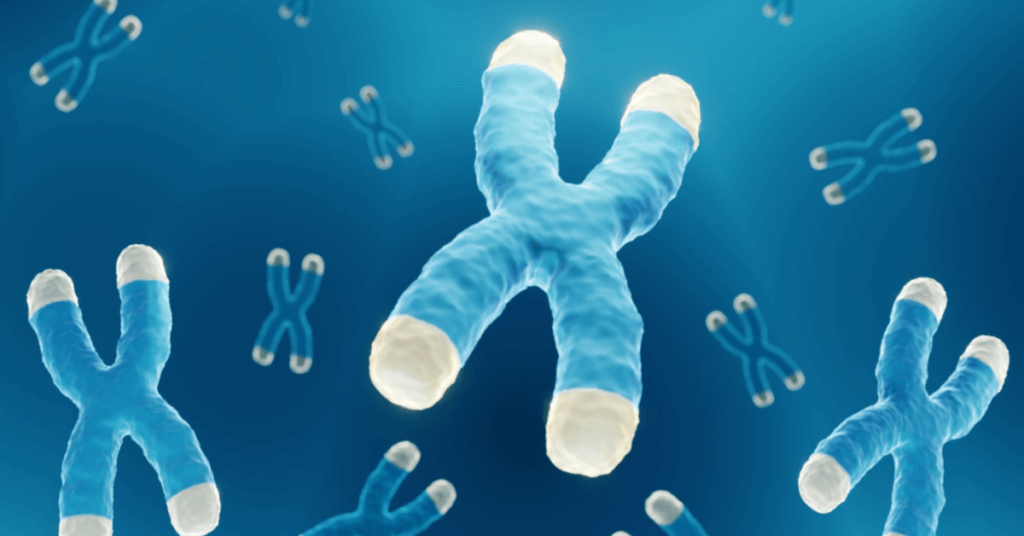
Long-term effects of chemotherapy on male fertility
Chemotherapy is a common treatment for various types of cancer, but it can have significant effects on male fertility, including sperm counts. Let’s explore the long-term impact that chemotherapy agents can have on reproductive health and the potential risks involved in their recovery.
Some men experience permanent infertility following certain types or doses of chemo drugs.
For some men, chemotherapy agents can result in prolonged azoospermia, which is the absence of sperm in the ejaculate. This means that they may become permanently infertile as a result of their cancer treatment. The severity and duration of azoospermia can vary depending on the specific chemotherapy drugs used and their doses. Recovery is possible with time.
Chemotherapy drugs target rapidly dividing cells, including cancer cells, but can also affect healthy cells responsible for sperm production. High doses of certain chemotherapy medications increase the risk of permanent infertility compared to lower doses or different drug combinations. Recovery is important after chemotherapy treatment.
Even if fertility is restored, there might be an increased risk of genetic abnormalities in offspring due to damaged DNA from past treatments.
In some cases, men who undergo chemotherapy may experience fertility recovery after treatment ends. However, it’s important to note that even if sperm production resumes, there may still be potential risks associated with conception. The damage caused by chemotherapy to DNA within sperm cells can lead to an increased risk of genetic abnormalities in offspring.
It’s crucial for individuals who have undergone chemotherapy to consult with a healthcare professional before attempting pregnancy. Genetic counseling may be recommended to assess sperm counts, the potential risks, and discuss available options for family planning and recovery.
Semen parameters may gradually improve over time after completing chemotherapy but not always return to pre-treatment levels completely.
After completing chemotherapy, many men experience improvements in sperm counts over time. However, it’s important to manage expectations as these counts might not fully return to pre-treatment levels. Factors such as age at the time of treatment and the specific chemotherapy drugs used can influence the extent of recovery.
Semen analysis is commonly performed to assess sperm count, motility, and morphology in the context of recovery. While improvements may be observed, it’s crucial to understand that there can still be lingering effects from chemotherapy on sperm quality during the recovery process. Regular follow-ups with a healthcare professional specializing in reproductive health can help monitor any changes and provide guidance for individuals seeking to start a family after recovery.
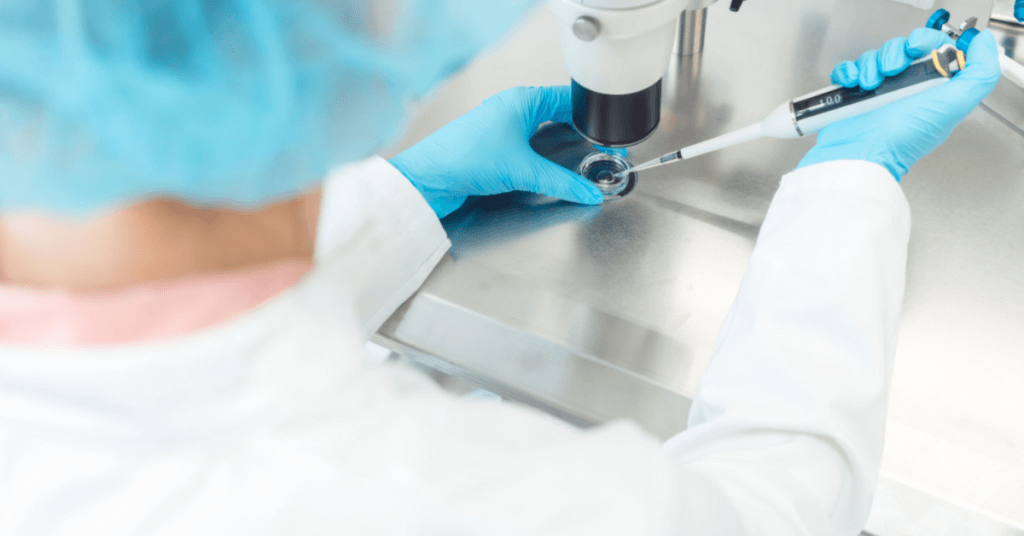
Strategies for preserving fertility before chemotherapy
Preserving fertility is a significant concern for many cancer patients undergoing chemotherapy. Fortunately, there are several strategies available to help men protect their ability to have children in the future. From sperm banking to experimental techniques, let’s explore the options for fertility preservation.
Sperm Banking: Storing Semen Prior to Chemotherapy
Sperm banking is a widely used method that allows men to store their semen before starting chemotherapy. This process involves collecting and freezing semen samples, which can then be thawed and used for assisted reproductive techniques, such as in vitro fertilization (IVF), when the patient is ready to start a family.
By opting for sperm banking, men can ensure that they have viable sperm available even if chemotherapy negatively impacts their fertility. It provides them with the opportunity to have biological children later on without worrying about potential infertility issues caused by the treatment.
Testicular Sperm Extraction (TESE): Retrieving Sperm for Future Use
In some cases where men may not have enough mature sperm in their ejaculate, testicular sperm extraction (TESE) can be performed as an alternative method of retrieving sperm. TESE involves surgically extracting tissue from the testicles and identifying viable sperm within it.
This technique offers hope to those who may not be able to produce sufficient amounts of sperm through normal ejaculation due to chemotherapy or other factors. The retrieved sperm can then be used alongside assisted reproductive technologies like IVF or intracytoplasmic sperm injection (ICSI) to achieve pregnancy.
Pre-Treatment Counseling: Understanding Fertility Preservation Options
Before beginning chemotherapy, it is crucial for cancer patients to receive pre-treatment counseling regarding their fertility preservation options, including sperm counts. This counseling session helps individuals gain a comprehensive understanding of the available techniques and make informed decisions based on their specific circumstances.
During this counseling session, healthcare professionals explain the processes involved in fertility preservation methods like sperm banking and TESE. They discuss the success rates, potential risks, and any associated costs to ensure patients have all the necessary information to make the best choice for their future fertility.
Experimental Techniques: Exploring Potential Alternatives
While sperm banking and TESE are well-established methods for preserving fertility, there are also experimental techniques being explored that offer potential alternatives. One such technique is testicular tissue cryopreservation.
Testicular tissue cryopreservation involves freezing a small piece of testicular tissue before chemotherapy begins. This method aims to preserve not only sperm but also other cells within the testicles that may contribute to future fertility advancements. Although this technique is still in its early stages of development, it holds promise for men who may not benefit from traditional preservation methods.
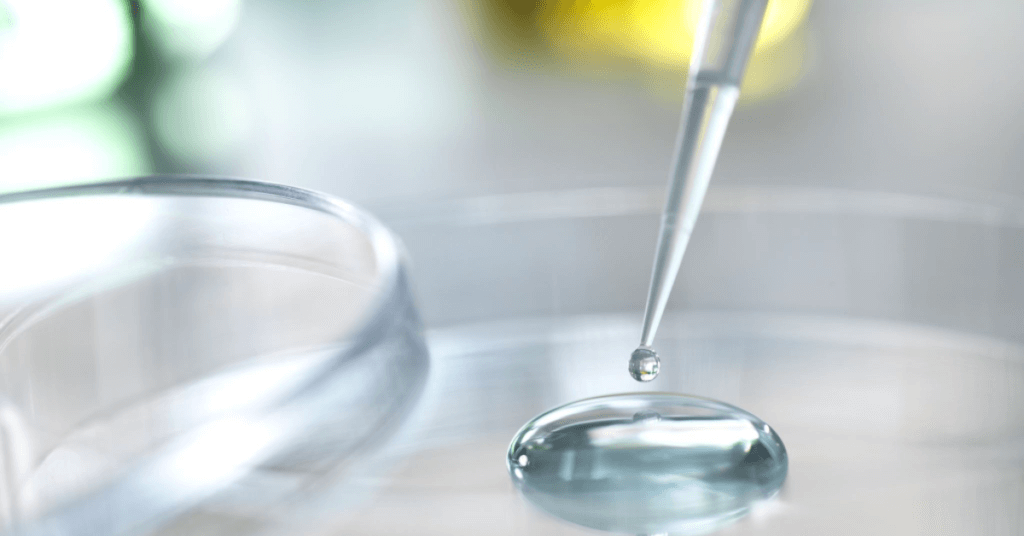
Assessing sperm quality after chemotherapy
Chemotherapy can have a significant impact on sperm quality, and assessing the effects is crucial for individuals who are considering fertility preservation or planning to start a family in the future. Semen analysis is the primary method used by healthcare professionals to evaluate post-chemo sperm quality. This comprehensive test provides valuable information about various parameters that determine the health and viability of sperm.
Evaluating sperm concentration, motility, morphology, and DNA integrity
Semen analysis involves evaluating several key factors that contribute to sperm quality. One of these factors is sperm concentration, which refers to the number of sperm cells present in each milliliter of semen. A low sperm count can indicate potential fertility issues and may require further investigation or intervention.
Another important aspect assessed during semen analysis is sperm motility. Motility refers to the ability of sperm cells to move properly and swim towards an egg for fertilization. Healthy levels of motility are essential for successful conception as it increases the chances of reaching and penetrating an egg.
Morphology, which examines the shape and structure of individual sperm cells, is also evaluated in semen analysis. Abnormalities in morphology can affect fertility as they may hinder proper movement or prevent successful fertilization.
In addition to these parameters, DNA integrity plays a crucial role in determining post-chemo sperm quality. Chemotherapy drugs can potentially cause damage to the genetic material within sperm cells. Specialized tests like the Comet assay can measure DNA damage in chemo-exposed sperm and provide insights into potential risks associated with genetic abnormalities.
Monitoring changes through follow-up semen analyses
To assess how long chemo affects sperms, it’s important to conduct follow-up semen analyses at regular intervals after completing chemotherapy treatment. This allows healthcare professionals to monitor any changes in various parameters such as concentration, motility, morphology, and DNA integrity over time.
By comparing multiple semen analyses taken at different time points, patterns and trends can be identified. This information is valuable for understanding the long-term effects of chemotherapy on sperm quality and determining appropriate fertility preservation strategies.
Exploring options for fertility preservation
For individuals concerned about the potential impact of chemotherapy on their fertility, there are several options available to preserve sperm before starting treatment. One common method is sperm banking, which involves collecting and freezing a semen sample for future use.
Sperm banking allows individuals to store healthy sperm that can be used in assisted reproductive techniques, such as in vitro fertilization (IVF) or intrauterine insemination (IUI), when they are ready to start a family. It provides an opportunity to safeguard fertility and increases the chances of successful conception post-chemotherapy.
In some cases where sperm production may be severely affected by chemotherapy, testicular sperm extraction (TESE) may be considered. TESE involves retrieving sperm directly from the testicles through a minor surgical procedure. This technique enables individuals with low sperm counts or impaired sperm production to still have a chance at biological parenthood.

Fertility options for male cancer survivors
Assisted reproductive technologies (ART) such as in vitro fertilization (IVF) can assist with conception after chemotherapy.
Assisted reproductive technologies (ART) offer hope and possibilities. One of the most commonly used methods is in vitro fertilization (IVF). This technique involves retrieving eggs from the female partner and sperm from the male partner, combining them in a laboratory dish, and then transferring the resulting embryos into the woman’s uterus.
For male cancer survivors who have undergone chemotherapy, IVF can be an effective way to achieve pregnancy. The process allows couples to bypass any potential issues caused by chemo effects on sperm production or quality. By selecting healthy sperm for fertilization, IVF increases the chances of successful conception.
In cases where cancer treatment has severely affected sperm quality or quantity, intracytoplasmic sperm injection (ICSI) may be necessary. ICSI involves injecting a single healthy sperm directly into an egg to facilitate fertilization. This technique can overcome significant challenges related to chemo-induced damage to spermatogonia and ensure that viable embryos are created for implantation.
Donor sperm or adoption are alternative options for couples facing permanent infertility due to chemo effects on male fertility.
For some couples facing permanent infertility due to chemo effects on male fertility, donor sperm or adoption can provide alternative paths towards parenthood. Donor sperm allows couples to still experience pregnancy and childbirth while using healthy sperm from a donor. This option ensures that genetic fatherhood remains possible despite the challenges posed by cancer treatments.
Adoption is another route that many couples consider when they cannot conceive naturally after chemotherapy. It offers an opportunity to build a family through providing a loving home for a child in need. Adoption not only fulfills the desire to become parents but also brings immense joy and fulfillment as individuals contribute positively to a child’s life. For couples experiencing low sperm counts, adoption can be a wonderful alternative to biological conception.
Surrogacy allows genetic fatherhood even if natural conception is not possible.
When cancer treatments have rendered natural conception impossible, surrogacy can be a viable option for male cancer survivors. Surrogacy enables individuals to become genetic fathers by using their own sperm and a surrogate mother’s egg. The surrogate carries the pregnancy on behalf of the intended parents, allowing them to experience the joy of biological parenthood despite the challenges they have faced.
Surrogacy involves various legal and ethical considerations, and it is essential to work closely with a fertility specialist or reproductive urologist experienced in assisting cancer survivors. They can guide couples through the process, ensuring all parties involved are well-informed and protected throughout the journey.

Coping with infertility challenges post-chemotherapy
Seeking emotional support from loved ones or support groups can help cope with infertility-related stressors.
Dealing with the impact of chemotherapy on fertility can be emotionally challenging for individuals and couples. It is essential to seek emotional support from loved ones or join support groups that specialize in addressing the unique struggles faced by cancer patients dealing with fertility problems.
Having a strong support system can provide a safe space to express feelings, fears, and frustrations. Loved ones can offer empathy, understanding, and encouragement throughout this difficult journey. Support groups allow individuals to connect with others who share similar experiences, fostering a sense of belonging and reducing feelings of isolation.
In addition to personal networks, counseling services specializing in fertility issues are available to guide and assist those affected by chemo-induced infertility. These professionals understand the complexities of the emotional toll brought about by cancer therapies and can provide coping strategies tailored to individual needs.
Counseling sessions may involve exploring emotions surrounding infertility, discussing options for building a family after chemotherapy, managing anxiety and depression related to fertility challenges, and developing effective communication skills between partners. The guidance provided by fertility counselors empowers individuals and couples to navigate their emotions more effectively while working towards building a fulfilling future.

Exploring alternative paths to parenthood, such as adoption or surrogacy, can offer hope and fulfillment despite fertility challenges.
While chemotherapy drugs may impact sperm production temporarily or permanently, it does not mean that parenthood is off the table entirely. There are alternative paths available for individuals or couples who wish to become parents but face infertility due to cancer treatments.
Adoption is one such option that offers hope for creating a loving family. Many children around the world are in need of safe and nurturing homes. Adoption agencies facilitate the process of matching prospective parents with children who require care and love. This path allows individuals or couples impacted by chemo-induced infertility to experience the joys of parenthood and provide a loving home for a child in need.
Surrogacy is another alternative that can be explored. In this arrangement, an individual or couple works with a surrogate mother who carries the pregnancy on their behalf. This option allows individuals to have a biological connection to their child while overcoming fertility challenges caused by chemotherapy or other cancer therapies.
Exploring these alternative paths may require careful consideration, research, and consultation with professionals specializing in adoption or surrogacy. However, embarking on such journeys can offer hope and fulfillment despite the hurdles posed by chemo-induced infertility.

Open communication between partners about feelings and concerns related to infertility is crucial for maintaining a strong relationship.
Infertility challenges can strain even the strongest of relationships. It is vital for partners to maintain open lines of communication throughout this difficult period. Honest conversations about emotions, fears, and concerns related to fertility problems are essential for fostering understanding and support within the relationship.
By openly discussing their feelings, individuals and couples affected by chemo-induced infertility can create an environment of empathy and shared understanding. This open communication allows partners to navigate the emotional rollercoaster together, providing comfort and reassurance during moments of doubt or frustration.
Sharing concerns about future family planning options is also crucial in maintaining a strong bond. Partners should explore different avenues available to them post-chemotherapy, such as adoption or surrogacy if biological parenthood becomes challenging due to fertility issues caused by cancer treatments.
It is important for both partners to actively listen without judgment when discussing these sensitive topics. By demonstrating empathy towards one another’s emotions and concerns, couples can strengthen their relationship while facing the challenges brought about by chemo-induced infertility together.
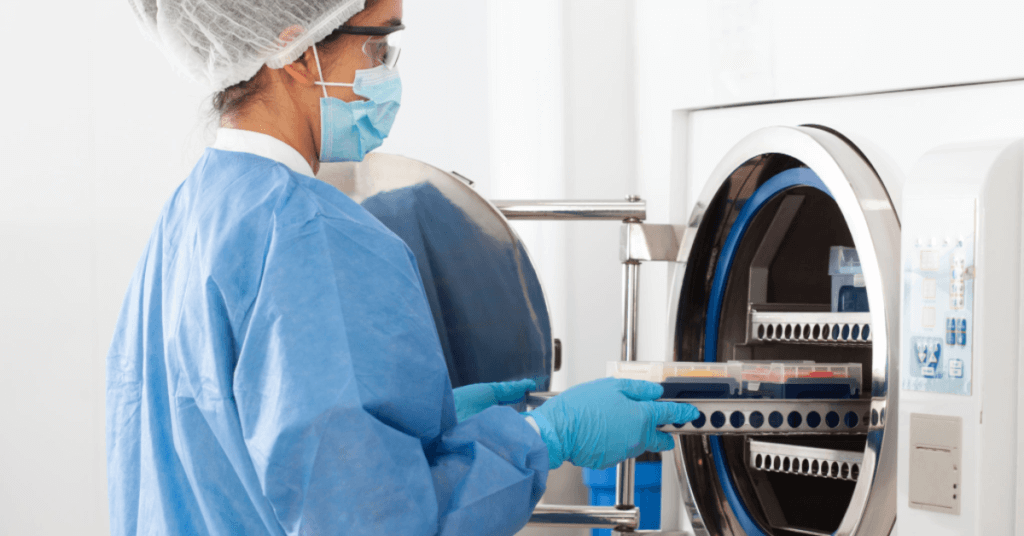
Supportive care for male fertility preservation during chemo
Many men of reproductive age have concerns about how it may affect their fertility. It is essential for oncologists to discuss fertility preservation options with these patients before starting treatment. By collaborating with reproductive specialists, comprehensive care can be provided throughout the treatment process, ensuring that patients have access to the necessary support and resources.
One important aspect of male fertility preservation during chemotherapy is the preservation of spermatogonial stem cells. These cells are responsible for producing sperm and can be harvested and frozen prior to starting treatment. By preserving these stem cells, men have the opportunity to potentially restore their fertility in the future. This option should be discussed with patients as part of their overall care plan.
In addition to preserving spermatogonial stem cells, it is also crucial to monitor the quality of sperm during chemotherapy. Regular check-ups can help identify any changes or declines in sperm count or motility. If necessary, interventions or adjustments to the treatment plan can be made in order to minimize any negative impact on fertility.
Collaboration between oncologists and reproductive specialists is key in providing optimal care for male patients undergoing chemotherapy. This multidisciplinary approach ensures that all aspects of a patient’s reproductive health are considered and addressed throughout their treatment journey. By working together as a team, healthcare providers can offer personalized guidance and support tailored to each individual’s needs.
Financial concerns are another common worry. Oncologists should provide information on available resources and financial assistance programs that can help alleviate these concerns. By offering guidance on insurance coverage, grants, or other funding options, patients can make informed decisions without added financial stress.
It is important for male patients undergoing chemotherapy to understand that while some temporary side effects may occur, such as decreased libido or changes in ejaculation volume, these do not necessarily indicate permanent infertility. The impact of chemotherapy on fertility can vary depending on factors such as the specific drugs used, the dose and duration of treatment, and individual patient characteristics.

Lifestyle modifications to improve post-chemo sperm health
Adopt a healthy diet rich in antioxidants
One of the key lifestyle modifications is adopting a healthy diet. Research suggests that incorporating foods rich in antioxidants can help mitigate the effects of chemotherapy on sperm quality. Antioxidants are known for their ability to neutralize harmful free radicals, which can cause damage to cells, including sperm cells.
Including fruits and vegetables such as berries, spinach, broccoli, and tomatoes in your daily meals can provide a good dose of antioxidants. These foods contain vitamins A, C, and E, as well as other beneficial compounds like lycopene and beta-carotene. Consuming these nutrients helps protect sperm from oxidative stress caused by chemotherapy drugs.
Regular exercise for overall well-being
Regular exercise not only promotes overall health but may also have positive effects on reproductive function after chemotherapy. Engaging in physical activity increases blood flow throughout the body, including the genital area. This enhanced blood circulation can potentially support healthier semen production and improve sexual function.
Consider incorporating activities such as brisk walking, jogging, swimming, or cycling into your routine. Aim for at least 30 minutes of moderate-intensity exercise most days of the week. However, it’s important to listen to your body and consult with your healthcare provider before starting any new exercise regimen during or after chemo treatment.
Avoid smoking, excessive alcohol consumption, and illicit drug use
To optimize post-treatment sperm health, it is crucial to avoid smoking cigarettes or using any form of tobacco products. Smoking has been linked to various negative effects on male fertility such as reduced semen quality and hormonal imbalances that may interfere with normal reproductive function.
Excessive alcohol consumption should also be avoided as it can negatively impact sperm production and quality. Studies have shown that heavy drinking can lead to decreased testosterone levels and impaired sexual function.
Illicit drug use should be strictly avoided as it can have detrimental effects on sperm health. Certain drugs, such as marijuana and cocaine, have been associated with reduced sperm count, motility, and abnormal morphology.

Manage stress levels through relaxation techniques or therapy
Stress can significantly impact reproductive health in both men and women. For individuals undergoing chemotherapy, managing stress levels becomes even more crucial to improve post-chemo sperm health. High-stress levels can interfere with hormone production, sexual desire, and overall well-being.
Consider incorporating relaxation techniques into your daily routine to reduce stress. Practices such as deep breathing exercises, meditation, yoga, or engaging in hobbies you enjoy can help alleviate anxiety and promote a sense of calmness.
In some cases, seeking therapy or counseling may also be beneficial for managing stress related to fertility concerns. Talking to a professional can provide support and guidance on coping strategies during this challenging time.
By adopting a healthy diet rich in antioxidants, engaging in regular exercise for overall well-being, avoiding smoking, excessive alcohol consumption, and illicit drug use while effectively managing stress levels through relaxation techniques or therapy; individuals undergoing chemotherapy can make positive lifestyle modifications that may improve post-chemo sperm health.
Remember that every individual’s situation is unique. It is essential to consult with your healthcare provider for personalized advice tailored to your specific needs and circumstances.

Duration of Sperm Damage from Chemotherapy
Chemotherapy can have a significant impact on sperm quality and fertility in men. Understanding the duration of sperm damage caused by chemotherapy is crucial for individuals seeking to preserve their fertility. Let’s explore some key factors and considerations related to this topic.
How does chemotherapy affect sperm quality?
Chemotherapy drugs are designed to target rapidly dividing cells, which unfortunately includes both cancer cells and healthy cells, such as those involved in sperm production. This can lead to a decline in sperm count, motility, and overall quality. The severity of these effects can vary depending on the specific drugs used, dosage, treatment duration, and individual factors.
Factors influencing sperm recovery after chemotherapy
The ability of sperm to recover after chemotherapy differs among individuals. Factors that influence the recovery process include age, overall health status, pre-existing fertility issues, type of cancer being treated, and the specific chemotherapy regimen employed. It is important to note that recovery may not be possible for everyone.
Understanding the mechanism of chemo-induced sperm damage
Chemotherapy-induced damage to sperm occurs primarily through DNA fragmentation and oxidative stress. These processes can disrupt normal cellular function and impair sperm production. The exact mechanisms underlying this damage are still being studied but involve complex interactions between chemotherapy drugs and reproductive tissues.
Long-term effects of chemotherapy on male fertility
While some studies suggest that certain individuals may experience improvements in their sperm parameters over time following completion of chemotherapy, it is essential to recognize that long-term effects on male fertility can persist. In some cases, these effects may be irreversible or require medical intervention for conception.
Strategies for preserving fertility before chemotherapy
For males who wish to preserve their fertility before undergoing chemotherapy treatment, several options are available. Sperm banking or cryopreservation is commonly recommended as an effective method for storing healthy sperm prior to treatment initiation. This allows individuals the opportunity to pursue biological fatherhood later in life.
Assessing sperm quality after chemotherapy
After completing chemotherapy, it is crucial to assess sperm quality before attempting conception. Semen analysis, which evaluates various parameters such as sperm count, motility, and morphology, can provide valuable insights into the potential for natural conception or the need for assisted reproductive techniques.
Fertility options for male cancer survivors
Male cancer survivors facing fertility challenges have several options available to achieve parenthood. These may include assisted reproductive technologies like in vitro fertilization (IVF), intracytoplasmic sperm injection (ICSI), or the use of donor sperm. Consulting with a fertility specialist can help determine the most suitable approach based on individual circumstances.
Coping with infertility challenges post-chemotherapy
Experiencing infertility after chemotherapy can be emotionally challenging. It is important to seek emotional support from loved ones and consider professional counseling services specializing in infertility issues. Open communication with your partner about feelings and concerns can also help navigate this difficult journey together.
Supportive care for male fertility preservation during chemo
During chemotherapy treatment, certain supportive measures may help minimize damage to sperm and improve chances of future fertility. These may include lifestyle modifications such as avoiding smoking, excessive alcohol consumption, exposure to environmental toxins, and maintaining a healthy diet and exercise routine.
Lifestyle modifications to improve post-chemo sperm health
Adopting a healthy lifestyle following chemotherapy can positively impact post-treatment sperm health. Engaging in regular physical activity, consuming a balanced diet rich in antioxidants and essential nutrients, managing stress levels effectively, and avoiding harmful habits like smoking or drug use are all beneficial steps towards improving overall fertility potential.
In conclusion, chemotherapy can have a significant impact on male fertility by affecting sperm quality. The duration of sperm damage from chemotherapy varies among individuals due to factors such as treatment specifics and personal characteristics. Understanding these effects is crucial for making informed decisions regarding fertility preservation options before starting treatment. Remember that seeking professional guidance from fertility specialists can provide personalized advice and support throughout this journey.

FAQs
How long does it take for sperm to recover after chemotherapy?
Recovery time for sperm after chemotherapy varies among individuals. Factors such as the specific drugs used, treatment duration, and personal health characteristics can influence the rate of recovery. While some individuals may experience improvements in sperm quality over time, others may face long-term or irreversible effects on fertility.
Can I still have children after undergoing chemotherapy?
Yes, it is possible to have children after undergoing chemotherapy. Fertility preservation methods such as sperm banking or assisted reproductive technologies like in vitro fertilization (IVF) can help individuals achieve parenthood even if their natural fertility has been affected by chemotherapy.
Are there any lifestyle changes I can make to improve my post-chemo sperm health?
Absolutely! Making certain lifestyle modifications can positively impact post-chemotherapy sperm health. Engaging in regular physical activity, consuming a balanced diet rich in antioxidants and essential nutrients, managing stress levels effectively, and avoiding harmful habits like smoking or drug use are all beneficial steps towards improving overall fertility potential.




